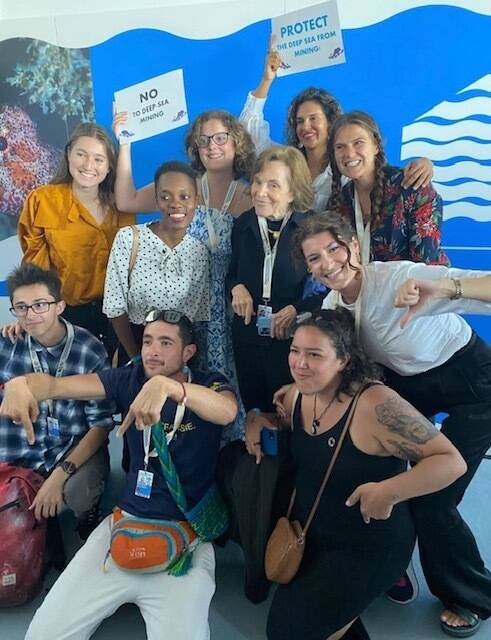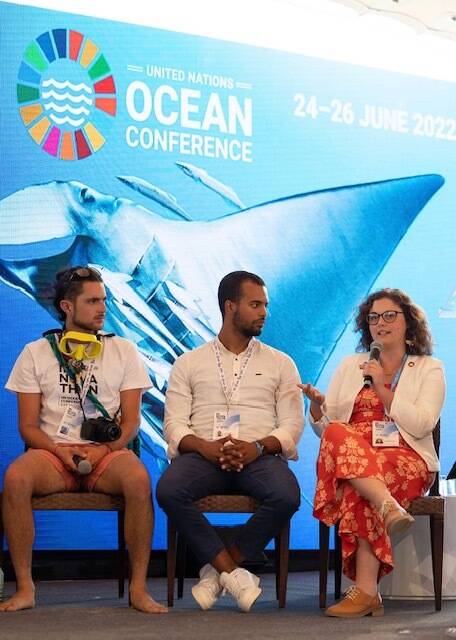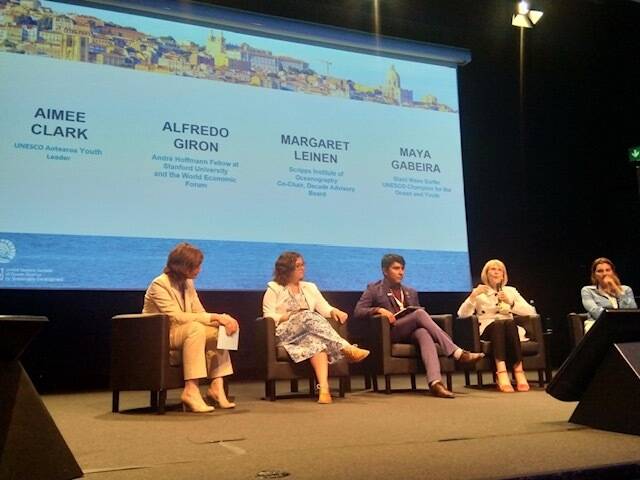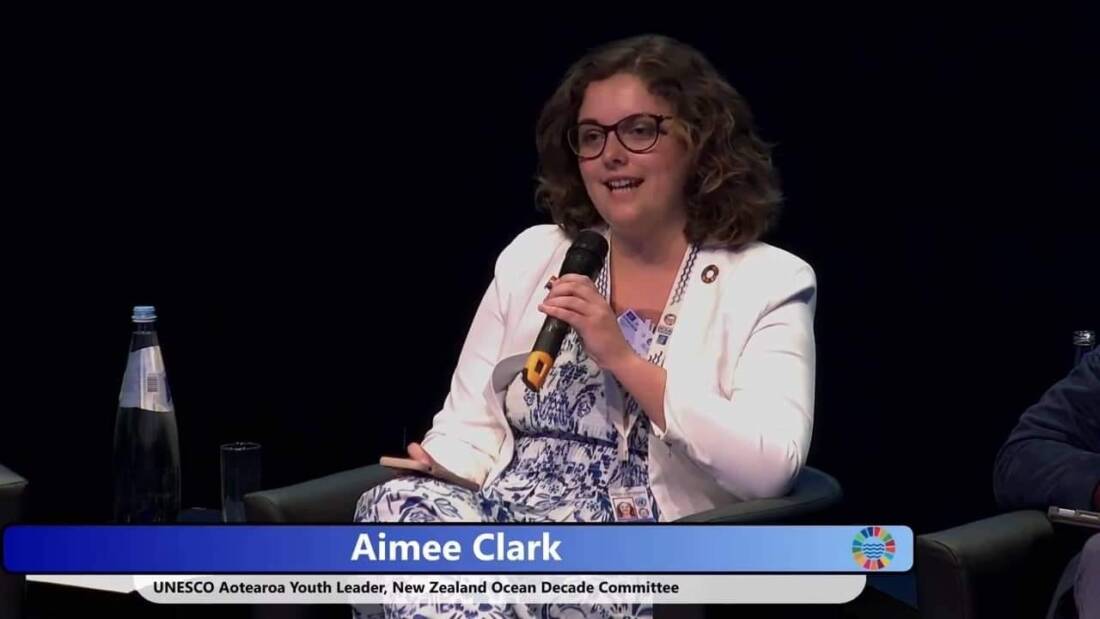Youth Leader reflects on her time at the UN Ocean Conference and the Youth & Innovation Forum.
During the last two weeks of June, UNESCO Aotearoa Youth Leader and National Decade Committee member, Aimee Clark, attended the UN Ocean Conference and the Youth & Innovation Forum in Lisbon, Portugal.
Below, Aimee reflects on her experiences attending both the Youth Forum and main conference, as an unofficial member of the New Zealand Delegation headed by the Ocean's Minister.
Aimee Reflects
In very late May I received an email that I had been accepted to attend the UN Ocean Conference Youth and Innovation Forum in Portugal. After a whirlwind of organising, I arrived in Lisbon four weeks later to begin my adventures at the UN Ocean Conference. This was the second Ocean Conference I had attended so I was very interested in what progress had been made since the previous event in terms of tangible actions and if there was any increase in youth accessibility and engagement.
After a few days exploring Lisbon, I caught the train out to Cascais to join 150 other young ocean leaders from around the world for the Youth Forum which took place at the NOVA School of Business and Economics between 24th-26th June. The overall aim for the Forum was featuring youth-led solutions to address the Sustainable Development Goal (SDG) 14 on Life Below Water targets and building connections between young people to drive change. The Forum was themed around five tipping points for a healthy and productive ocean including ending ocean waste, sustainable seafood, green shipping, mapping the ocean floor and harnessing renewables. One of the major components of the three-day event was an ‘Innovathon’ where we were placed into small teams and given a tipping point that we had 24 hours to come up with a new solution around to pitch to a panel of judges. I was placed in the ending ocean waste team which included representatives from both Guyana and Canada. We worked on a new policy toolkit for countries to use to take interim action before the Global Plastics Treaty comes into effect.
I also had the amazing opportunity to speak on a panel with ten other young people addressing the UN Secretary General and the President of Portugal about some of the solutions we were working on and the importance of intersectionality in dealing with ocean issues. On the final day of the Forum, we had a surprise visit from actor Jason Momoa, who had just been appointed as the UN Environment Programme advocate for SDG 14.


Overall, the best part of attending the Forum was connecting with the other amazing young people that were also involved. Attending events like this where there is so much youth energy for change and action is inspirational and I know that the relationships I have built- especially with the other delegates from the Pacific- will be very impactful in the future.
After the Forum finished, the youth that had access to attend the main UN Ocean Conference travelled back into the centre of Lisbon to contribute to the event. It was a wonderful experience to be a part of the New Zealand Delegation during the main conference as I was able to access parts of the conference like the Plenary sessions which I wouldn’t normally be able to witness. I would like to thank Josh, Nikki and Carolyn for being so welcoming and inclusive during my experience.
Two of the highlights for me during the main conference were the discussions around deep sea mining and the Ocean Decade Forum where I participated in a panel focusing on the interactions between the UN Ocean Decade and the Decade of Indigenous Languages. It was a privilege to represent the National Commission and National Decade Committee on this panel and to bring the importance of indigenous knowledge to the forefront of these discussions.

One of the main takeaways from the overall experience was a need for more youth engagement in the Ocean Decade and UN activities going forward. If the UN Ocean Decade is about transformative ocean science and ocean action then what exactly does transformation in the context of youth engagement mean?
I believe that we need to make sure that we are engaging with all young people across the world, not just the young leaders that have access to events like the UN Ocean Conference.
This includes youth from Small Island Developing States, indigenous youth, and young people from traditionally marginalised groups or communities. All young people have a perspective and a voice that has value to this importance conversation.
To echo the words of the UN Secretary General at the Youth and Innovation Forum, we need to move away from just tokenising youth in ocean spaces and move towards co-designing ocean policy and action alongside young people.
Young people are not only the future, we are also the present and we cannot just be handed down all the problems of the world without more access and support. I hope that the legacy of the Ocean Decade is one of inclusivity and co-design for true transformative action.
It was my honour to represent the National Commission and the Pacific at this important event and I want to thank the New Zealand Delegation, the New Zealand National Commission for UNESCO, the UN Global Compact and the Sustainable Ocean Alliance for this amazing opportunity.

